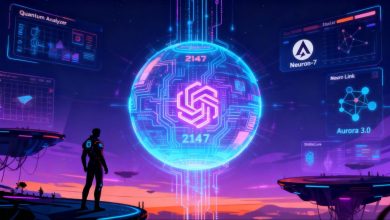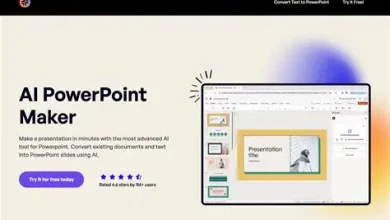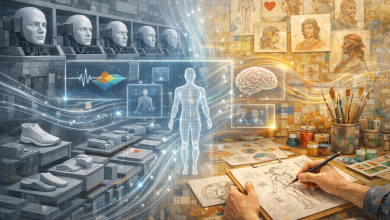
Hiring practices are undergoing a seismic shift, driven by the dual forces of technological advancement and a rapidly transforming global economy. At the centre of this evolution lies a question; are traditional CVs equipped to address the demands of a dynamic AI-powered world of work?
Digital skills passports, enriched with verified credentials and actionable data, are emerging as the desirable alternative for assessing talent. By leveraging this, businesses and employees can make more informed hiring decisions, close skill gaps and future-proof their teams while fostering transparency, equity and progression on a global scale.
With AI tools increasingly shaping hiring and workforce planning, Ian Howell, Managing Director at FutureLearn, looks at how businesses can leverage digital skills passports, and how this approach may change the growing skills gap.
The end of the static CV
The concept of the CV has remained largely unchanged since its inception, but by contrast, work itself has evolved drastically.
Skills are evolving faster than degree curriculums, resulting in an increasing misalignment between educational qualifications and workplace demands. A study by McKinsey, for instance, highlighted that digital upskilling initiatives will be critical for 40% of roles within the next decade.
Employees need to be able to upskill at a faster pace. Employers need to be able to quickly identify the talent with the skills they need. Given that CVs are static documents, they can often fail to capture the full scope of an individual’s capabilities or provide real-time insight into their adaptability to today’s business needs. This can be more of an issue when we think about lateral hiring; with businesses fighting to stay afloat in a tough economic climate, looking for internal candidates to fill changing roles is an integral solution. Do leaders and managers always know the full skills profile of their workforce?
This alone exposes how traditional resumes may sometimes fail to highlight an individual’s ongoing learning and technical flexibility, especially for positions that require ongoing development. For roles that demand continuous development and the ability to learn new tools or methodologies quickly, a CV may not adequately showcase a candidate’s learning mindset, cross-functional skills or competence with emerging technologies.
As such, employers and job seekers alike are increasingly recognising that the traditional CV is no longer sufficient to track and validate the full range of skills needed in an AI-driven hiring environment. Enter digital skills passports.
What are digital skills passports?
While a CV is self-reported and tailored to specific roles, a skills passport offers an objective overview of verified skills, making it useful for job matching, career mobility and training opportunities. Employers, educators and career services can use this to prioritise skills-based hiring or development, rather than filling a role with the same profile of candidate, even when the needs have changed.
The digital skills passport has rapidly emerged as a pivotal tool in today’s workforce, especially in the healthcare industry. Serving as a comprehensive record of an individual’s verified skills and qualifications, it helps professionals to present their capabilities with better clarity and authenticity, aligning with the shift towards more flexible, skills-oriented employment, where lifelong learning and adaptability are highly valued.
While digital skills passports are gaining traction as a transformative tool for recruitment and lateral hiring, they’re still a relatively new concept – with some open-minded companies, like FutureLearn, actively exploring how best to implement them fully. This forward-thinking approach underscores the importance of continuous innovation in bridging the skills gap and ensuring that businesses and individuals are equipped to thrive in an AI-driven workplace.
By enabling workers to showcase certifications and competencies on-demand, the digital skills passport not only enhances their career prospects but also streamlines talent discovery for employers. Its adoption signals a leap forward in creating transparent, efficient and equitable systems that respond to the fast-evolving demands of the global job market.
Digital skills passports can leverage technology, such as blockchain, to ensure credentials are verifiable and tamper-proof, too. The most important difference, however, is that unlike static CVs, skills passports are continuously updated and enriched, capturing a granular view of hard and soft skills, certifications, performance indicators and even behavioural competencies. As such, it provides a complete portrait of skills, enabling both businesses and individuals to make smarter decisions aligned with career goals and organisational needs. This also removes hiring bottlenecks and opens up a world of opportunity for employers.
Why would a business adopt a skills passport?
AI-driven digital skills passports level the playing field. They allow individuals from diverse backgrounds to showcase their talents, bypassing traditional barriers, such as educational pedigree or geographical restrictions.
Take LinkedIn’s Skills Assessments, for example. These feature skill-verification tests to enable users to display proficiency in targeted areas on their profiles. This highlights expertise over formal qualifications, offering those from educationally disadvantaged backgrounds the chance to compete equally with more traditional candidates for the same roles. This democratisation is further reinforced through government initiatives like Singapore SkillsFuture and the EU Digital Skills Passport, where people can access portable, verified credentials to support career growth in a globalised market.
Another key challenge of global hiring is ensuring fair accreditation of international qualifications. Standardised digital skills passports resolve this issue through portable, globally recognisable formats.
Imagine a tech professional in Nairobi competing seamlessly for a remote role in Berlin, without navigating complex validation procedures. This type of borderless hiring is no longer hypothetical; it’s actively being implemented through the EU Digital Skills Passport, enabling international trade in talent like never before.
On top of this, many credentials on CVs are self-reported, leaving recruiters susceptible to exaggerated claims and inaccuracies. Verifiable digital skills passports, however, bolster trust. Platforms that issue digital credentials can also be verified, helping businesses to ensure candidates possess the skills they claim to have. The tamper-proof nature of these verifications also eliminates ambiguities during the hiring process.
AI embedded within skills passports can also analyse an individual’s credentials to identify suitable roles efficiently. Such tools can help to tailor career matches to meet both candidate and employer aspirations. This customisation extends beyond hiring, as organisations can use skills passports to upskill existing employees, focusing resources on preparing them for future challenges.
The flight to continuous learning
Business and worldwide economies are evolving at an unprecedented pace. With this, lifelong learning has become imperative. Digital skills passports encourage individuals to continually update their records with newly acquired skills, certifications and achievements. They also foster a growth mindset, where continuous learning is the default.
For example, many online learning platforms allow workers to constantly refine their passports, reflecting their growth. Businesses, too, can assess staff readiness for emerging roles to identify opportunities for training and development, but importantly, it gives more flexibility and encouragement for workers to continue to develop.
Skills are emerging as the new currency of value. The shift away from rigid job titles towards dynamic ‘skills bundles’ enables organisations to focus on what individuals can do, rather than the roles they have traditionally held. This approach empowers employees to showcase a diverse range of competencies, promoting better alignment between talent and business needs. By prioritising skills over titles, companies can create more adaptable and future-ready teams, driving innovation and growth in an increasingly unpredictable global landscape.
Skills passports also offer remarkable efficiency when it comes to recruitment. By avoiding the time-consuming process of verifying candidate qualifications manually, recruiters can identify top talent faster.
With AI’s ability to parse digital credentials for task-specific capabilities, businesses can dramatically reduce their time-to-hire, fostering competitive advantage in tight labour markets.
The future of workforce readiness
Integrating digital skills passports into workforce planning is an intelligent and efficient way to future-proof teams and create a workforce adaptable to disruption. It encourages a talent ecosystem ready to meet shifting demands, no matter how rapidly industries evolve.
Organisations willing to invest in adopting these practices will set themselves up to build resilient, high-performing teams while ensuring equity and transparency across their recruitment strategies.
The traditional CV still plays a strong role, but the age of AI demands superior solutions. With digital skills passports, talent decisions are destined to become smarter, fairer and more impactful for everyone involved.





